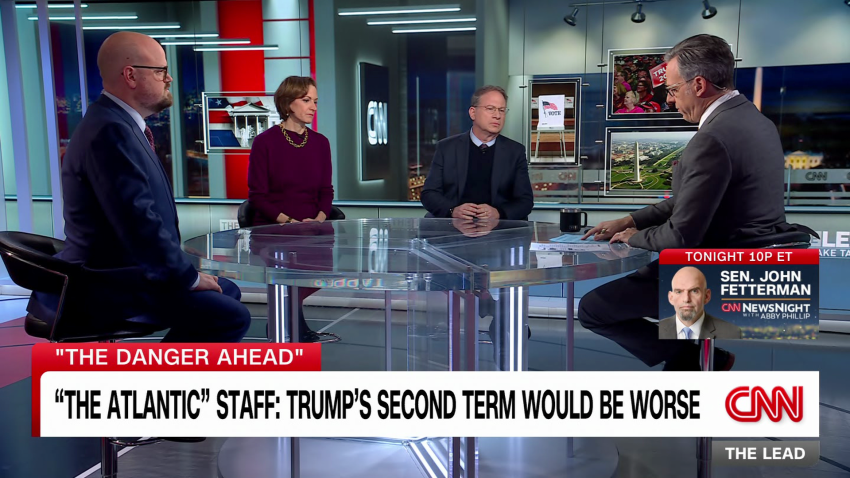Editor’s Note: Sign up to get this weekly column as a newsletter. We’re looking back at the strongest, smartest opinion takes of the week from CNN and other outlets.
In the 1960s, film student John Milius began writing an adaptation of the classic Joseph Conrad novella “Heart of Darkness.” It took until 1979 to bear fruit, but it was worth the wait: Francis Ford Coppola turned the script into a searing anti-war movie now considered one of the greatest films ever made: “Apocalypse Now.”
The selection of the movie’s title had tangled roots — Milius, a brash conservative who would become the real-life model for John Goodman’s character in “The Big Lebowski,” got the inspiration from a hippie slogan: “Nirvana now.”
In US politics, the past few weeks have been consumed by a hellish vision of a fate that could await America in the not-so-distant future — it’s definitely not “Nirvana now,” or even “Apocalypse Now,” but more like “Apocalypse in 2025.”
A powerfully argued piece by Robert Kagan in the Washington Post’s opinion section carried a headline warning: “A Trump dictatorship is increasingly inevitable. We should stop pretending” — though the piece itself conceded that “Nothing in history is inevitable.”
The Atlantic commissioned 24 writers to opine on ways former President Donald Trump could take a wrecking ball to US democracy if he returns to the White House 13 months from now. “A second Trump term would instantly plunge the country into a constitutional crisis more terrible than anything seen since the Civil War,” wrote the Atlantic’s David Frum.
Speaking at an Iowa town hall on Fox News, Trump himself admitted that he would indeed be a “dictator” — but only on his first day in office — and failed to renounce the prospect of abusing his power as president or using the office to seek retribution against his critics. On Saturday, Trump labeled the claim that he would threaten democracy a “hoax” by Democrats, who he said were seeking to divert attention from “the monstrous abuses of power the left is committing.”
President Joe Biden compounded Democrats’ worries by confessing Tuesday that he might not be running for reelection were it not for the need to stop Trump from winning (Biden later clarified that he would be running anyway). The next day, a CNN poll reported that Biden’s approval rating has fallen to 37%, down 8 percentage points from January, amid pervasive gloom about the economy.
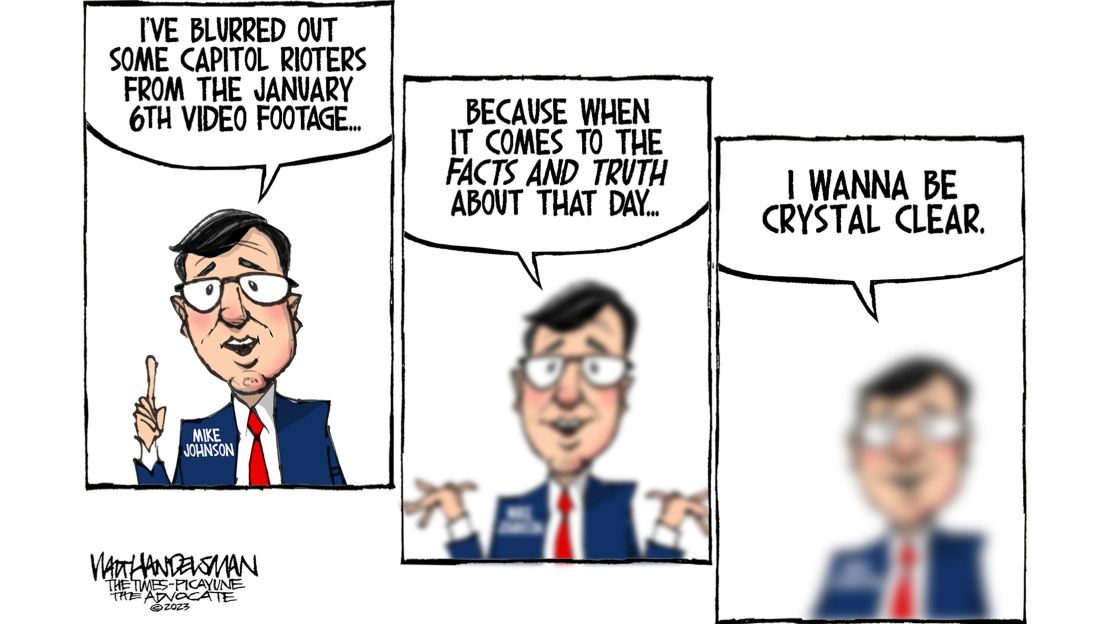
“There is little doubt that a second term Trump would be extraordinarily dangerous to the Republic,” wrote historian Julian Zelizer, spelling out seven reasons to worry. “He would give the Imperial Presidency new meaning, displaying the kind of force that the historian Arthur Schlesinger could never have imagined when he coined the term in 1973 in the shadow of Nixon. It will be incumbent on Republicans running against Trump in the primaries to make certain that voters understand the risk of staying on the existing path. It will be incumbent on President Biden and the Democrats to make very clear to the electorate what the stakes are in the choice that they will make in November.”
The desire and the need to plan for worst-case scenarios is understandable, even if it is still early. We are roughly 330 days away from Election Day and more than 400 from the 2025 inauguration. Not a single vote has been cast in the presidential primaries, where Trump and Biden are leading their respective parties.
Yet anyone who has lived through the closely contested presidential elections since the virtually-tied one in 2000 should be wary of predictions.
No one knows what the economy will look like on November 5, 2024 — nor the volatile geopolitical situation, the outcome of Trump’s four criminal indictments, the role of third parties and the results of the primaries, as well as the potential for “black swan” events (a “high-impact event that is difficult to predict under normal circumstances but that in retrospect appears to have been inevitable,” according to the Encyclopedia Britannica).
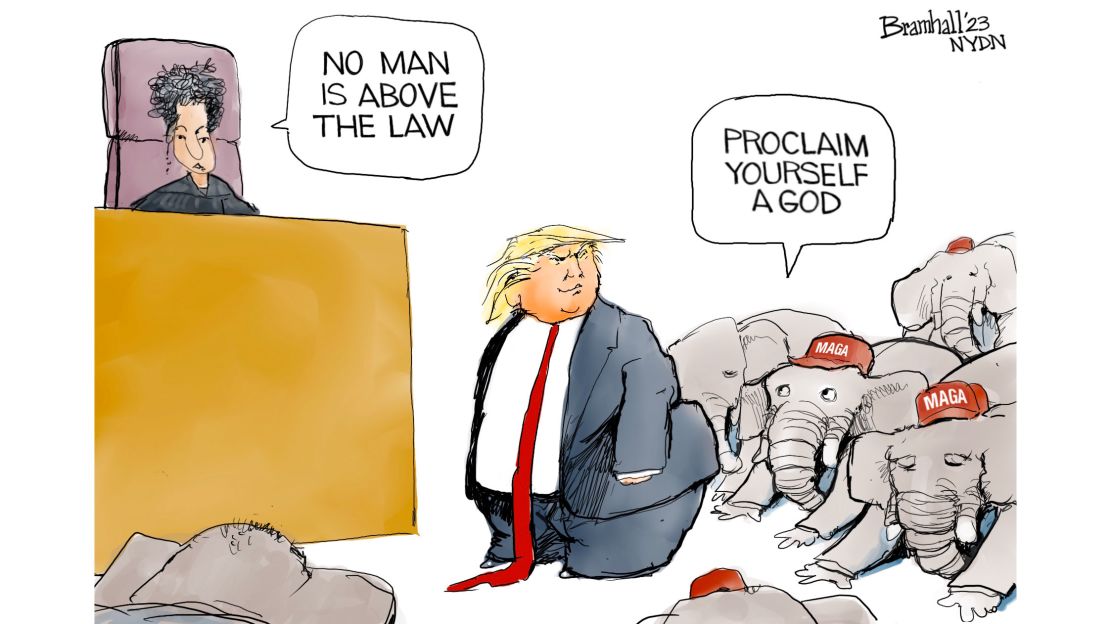
Four debaters
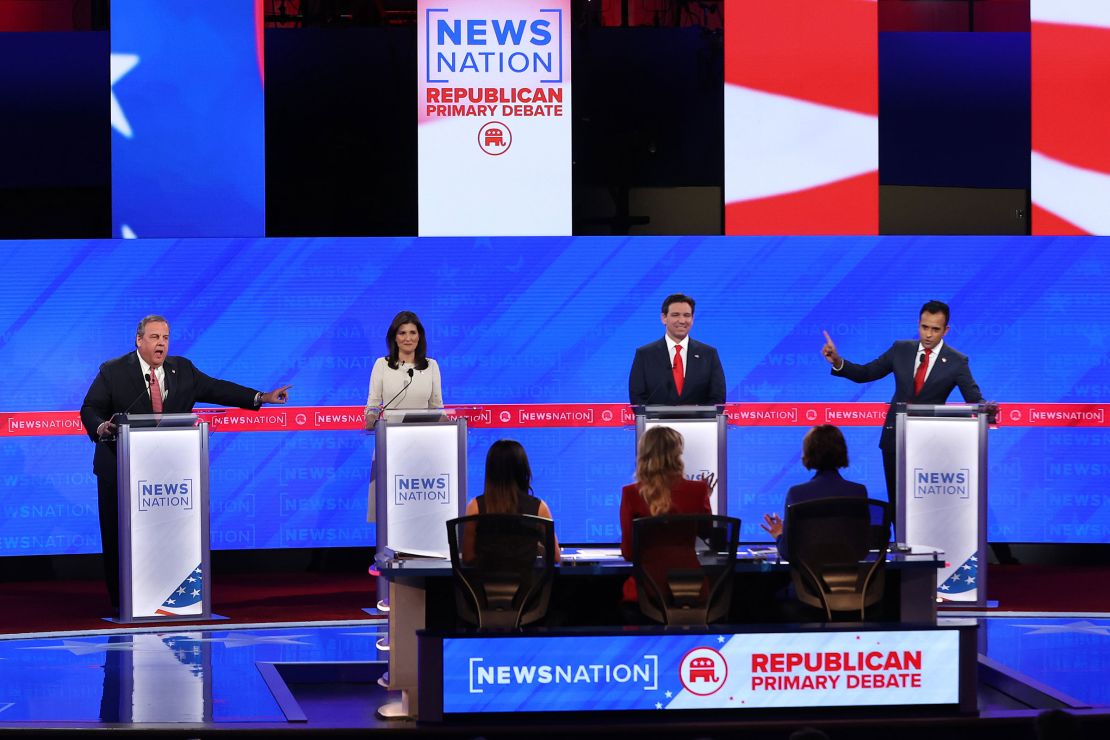
The fourth — and last — Republican presidential debate of 2023 featured a smaller field and stepped-up attacks on former UN Ambassador Nikki Haley, a candidate who has shown some momentum in the polls. It also included what debate coach Todd Graham called “the finest speech ever given in a presidential debate.”
That was Chris Christie’s response when asked about Trump’s “dictator” on “day one” comments.
“Completely predictable,” said Christie. “This is an angry, bitter man, who now wants to be back as president because he wants to exact retribution on anyone who has disagreed with him, anyone who has tried to hold him to account for his own conduct. … Do I think he was kidding when he said he was a dictator? All you have to do is look at the history…”
Noting that Christie was the only candidate to directly challenge Trump, Errol Louis wrote that the “wild, final Republican presidential debate of 2023, filled with vicious, personal attacks by the candidates, demonstrated once again that the nomination is Donald Trump’s to lose because all but one of his challengers are too frightened to take him on directly.”
Republican Geoff Duncan observed, “Two things are necessary for Republicans to dethrone Trump: consolidation of the field and a willingness to take on the frontrunner. We’ve achieved the former — Wednesday’s debate was half the size of the fourth showdown in 2015. Let’s hope this matchup marked the start of the latter.”
Vivek Ramaswamy “arduously — and falsely — insisted that the 2020 election was stolen,” wrote Sophia A. Nelson. “Let’s hope that Ramaswamy, who seems to offend everyone, has made his last showing on a national debate stage. He is not just divisive but — to borrow a term from former President Donald J. Trump — he’s the epitome of a ‘nasty’ man.”
“Haley looked like the lone adult on the stage. She kept her cool while the male candidates barked and pointed fingers at one another,” Nelson wrote.
Get our free weekly newsletter
Florida Gov. Ron DeSantis “may have had his best debate of the campaign,” wrote Patrick T. Brown. “But … asked which president he’d most like to model himself after, DeSantis avoided the predictable mention of Ronald Reagan by citing Calvin Coolidge, a favorite of limited-government-type conservatives. ‘Silent Cal knew the proper role of the federal government,’ he said.”
“That may be so. But a Coolidge-inspired approach to federal policy — one that prioritized saying little and focusing on cutting spending — is one better fit for the Republican Party of the Tea Party era than for the brash, muscular vision embraced by Trump.”
For more:
David Axelrod: There’s a lot of good news for Nikki Haley. But here’s the bad news
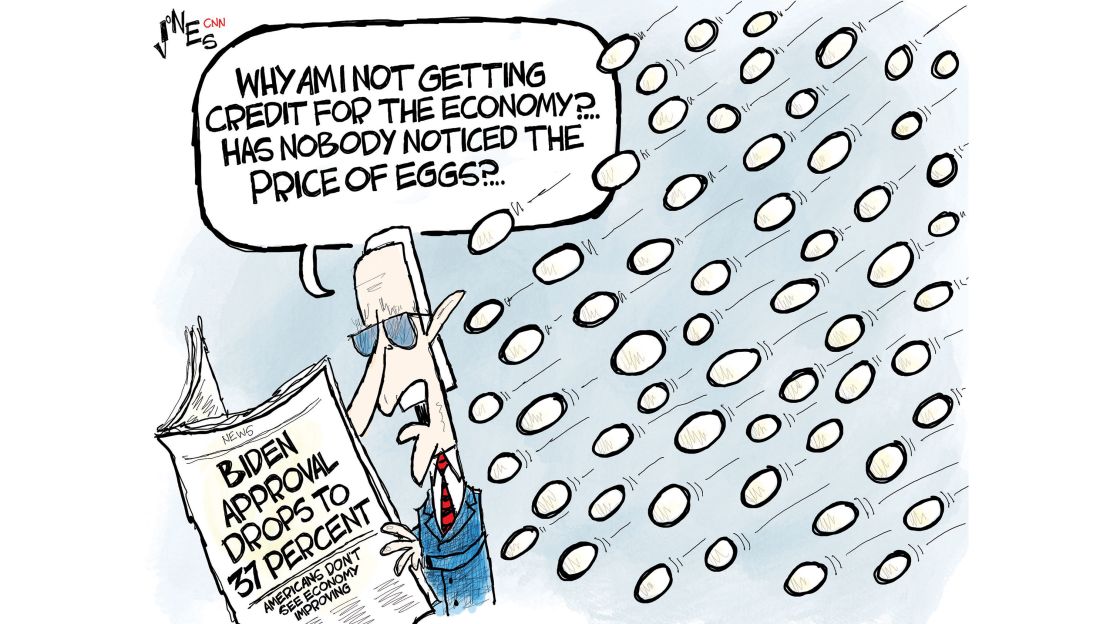
Genocide is not ok
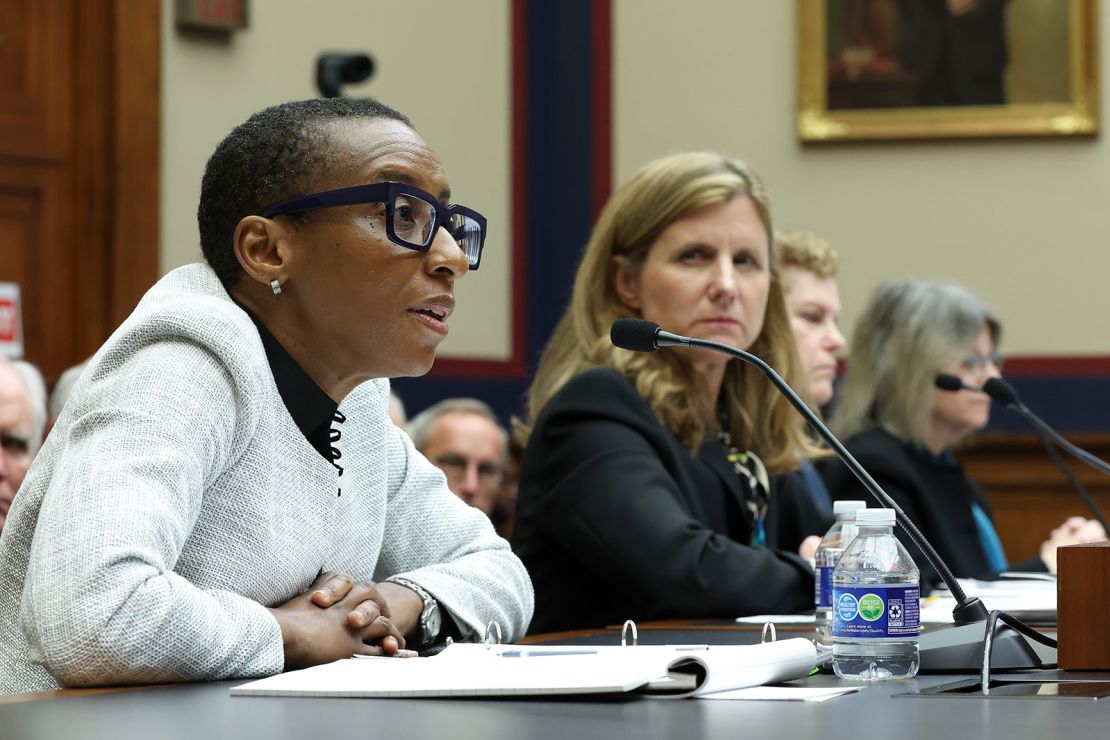
The presidents of Harvard, MIT and the University of Pennsylvania botched their answers to a question at a congressional hearing Tuesday, when they failed to confirm that advocating the genocide of Jews would violate university rules. Two of the three issued statements aiming to clean up the controversy following their remarks. On Saturday, UPenn President Liz Magill resigned.
Fareed Zakaria noted the presidents’ “vague and indecisive answers” to a straightforward question. “But to understand their performance we have to understand the shift that has taken place at universities, which have gone from centers of excellence to institutions pushing political agendas.”
“American universities have been neglecting excellence in order to pursue a variety of agendas — many of them clustered around diversity and inclusion. It started with the best of intentions. Colleges wanted to make sure young people of all backgrounds had access to higher education and felt comfortable on campus. But those good intentions have morphed into a dogmatic ideology and turned these universities into places where the pervasive goals are political and social engineering, not academic excellence…”
“In this context, it is understandable that Jewish groups would wonder, why do safe spaces, microaggressions, and hate speech not apply to us? If universities can take positions against free speech to make some groups feel safe, why not us? Having coddled so many student groups for so long, university administrators found themselves squirming, unable to explain why certain groups (Jews, Asians) don’t seem to count in these conversations.”
David M. Perry, a historian at the University of Minnesota, wrote, “No one should be calling for genocide and I want my university leaders to be clear about that.” But he argued that the real focus should be on the conversations “that take place in classrooms intentionally built to make the hard discussions possible. Where else but in the classroom can we even aspire to do this?
“Certainly not on social media. Certainly not in slogans printed or written on posters. And certainly not in the Congressional hearings. But it’s the latter kinds of speech that dominate the conversation because they are public, simplistic, and allow people to score political points. What’s more, it skews the conversation. People mistakenly think it is the whole conversation.”
Norman Lear, 101
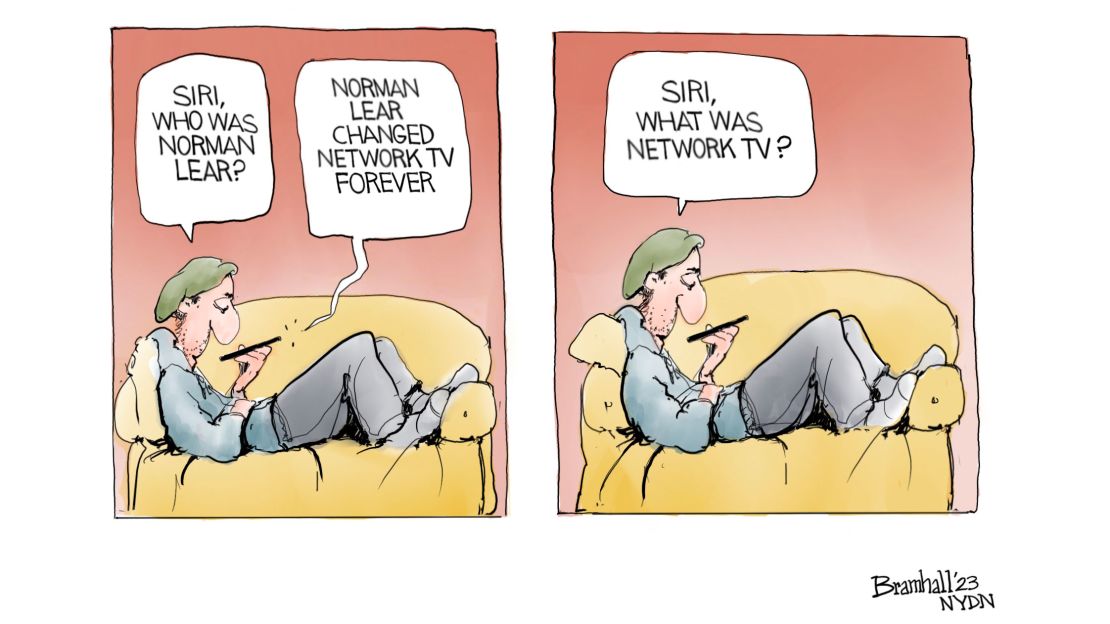
“All in the Family.” “The Jeffersons.” “Maude.” “Good Times.” “Sanford and Son.” “Mary Hartman, Mary Hartman.”
Those were just some of the creations of TV producer Norman Lear, who died last week at 101. “Beginning in 1971, when ‘All in the Family’ premiered on CBS,” Gene Seymour wrote, “Norman Lear’s reputation as a hit-making TV producer and socio-cultural provocateur cut a thundering, all-but-unstoppable path through the rest of the decade.”
Lear, who also founded the liberal group “People for the American Way,” remained active in show business till the end of his life. Bill Carter interviewed Lear when he was 98, and they bonded over the roles Lear and Carter’s father played as radio operators on US bombers in World War II.
“The reason Lear’s best comedies were such massive hits came down to an accumulation of factors, from timing to casting to his crucial grasping that America was ready for TV comedy that wasn’t based on Mom burning the roast,” wrote Carter.
“But the other essential was Lear’s understanding of the human condition.” Take Archie Bunker, the lead character in “All in the Family.”
“Norman always said that Archie contained elements of his own father: the exaggerated gruffness, the grievance psyche, the casual delivery of racial and ethnic slurs. But he argued that almost everybody had an Archie in their lives, and you couldn’t just dismiss them as narrow-minded bigots; their families still loved them, as America came to love Archie — much to the distress of social scientists of that era…”
“And showing us how embarrassing and silly they are.”
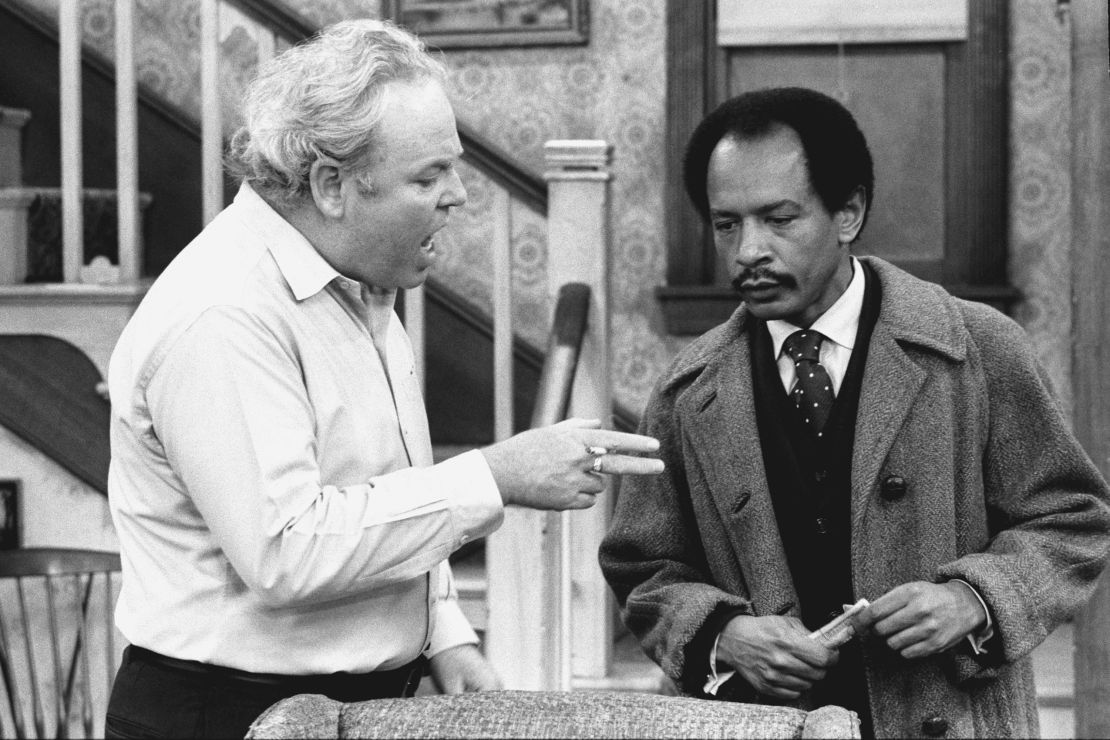
Border in crisis
Alberto Gonzales has stood on a bluff at the US southern border and “had the 200,000-square-mile Chihuahuan Desert stare back at me, asking why we stain its sand with the blood of children.”
The former US attorney general asked, “Why do we turn away from the suffering of our brothers and sisters who journey into the heat and leave their lives and dreams in its canyons? Why do we tolerate an immigration system that punishes the desperate and the patient alike — one that is simultaneously incapable of providing sufficient lawful workers to the US or effective border security?”
He argued that the border crisis should force government action. “Our communities are overwhelmed with migrants and their needs, especially as states near the border continue to bus new arrivals north…”
“The President must lead, and Congress must legislate and appropriate. Every day that we wait, more people die in that desert, crops go fallow without workers, supply chains are delayed and the entrepreneurial spirit of this country, fueled — ironically — by immigrants, is dulled.”
War and holidays
In the midst of the Israel-Hamas war, holiday observances are muted and in some cases mournful. The usual celebrations in Bethlehem, “revered as the birthplace of Jesus, the prince of peace,” will be mostly absent. It’s “a poignant reminder of the urgent need for a lasting peace. This Christmas presents a special opportunity to shed light on the struggles faced by Palestinian Christians, Palestinian Muslims, and Israeli Jews alike, with the hope that renewed focus and dialogue will pave the way for a path to reconciliation,” wrote Rateb Y. Rabie, the founder and president of the Holy Land Christian Ecumenical Foundation.
For Jews, who began the celebration of Hanukkah at sundown Thursday, the holiday comes at a time of concern over the war and rising incidents of antisemitism. Amy D. Klein suggested that this year Hanukkah may be veering away from commercialism and “returning to its original sentiment: that we Jews are a tiny minority in the world, fighting for our existence and praying for a miracle.” An initiative called “Project Menorah” is encouraging non-Jews to light Hanukkah candles in support.
“Despite my fears, I am going to wear my Jewish star, attend public holiday gatherings and place our lit menorah in a space for the world to see,” Klein wrote. “This Hanukkah, I hope I can be a force of light in the world — a world without fear, without antisemitism, without war — and I welcome all those who will be a force with me.”
There’s no letup in the war in Gaza, and in the skirmishes throughout the region, including at sea. As Frida Ghitis noted, “US military forces once again confronted aggressive, potentially deadly moves by Iran-allied militias in the Middle East over the weekend. It’s further evidence that American efforts to deter these militias’ dangerous, persistent belligerence are simply not working. The message to Iran is not getting through.”
“The US and NATO should assertively defend freedom of navigation. The Houthis, an Iran-armed organization, needs to be confronted before a disaster at sea sends shockwaves of disruption across the global economy.” Soon after taking office, the Biden administration lifted the Houthis’ designation as a terrorist group; that decision should be reversed, Ghitis wrote, after the Houthis attacked commercial ships in the Red Sea.
For more:
Ilene Prusher: I reported on Hamas for over a decade. The questions I’m asking myself now
Jill Filipovic: Celebrities speaking out on the war in Gaza should consider this
Young Thug on trial
Georgia prosecutor Fani Willis has brought a RICO case “testing the limits of the free speech afforded to one very high-profile, very colorful defendant,” Elliot Williams noted. “No, that defendant is not former President Donald Trump (though tricky First Amendment issues swirl around his case brought by … Willis’s office, as well).”
“The defendant, Jeffery Lamar Williams, more commonly known by his stage name Young Thug, is accused of co-founding a criminal street gang responsible for vicious acts stretching back a decade.”
The judge in the case is allowing 17 Young Thug rap lyrics to be used as evidence, a “boon to prosecutors.” Yet, wrote Elliot Williams, “bringing any kind of creative work into court as evidence against its artist flirts dangerously with impeding the kind of free expression and artistic innovation that make America special.”
“Moreover, the introduction of these lyrics exposes a decades-old problem at the intersection of race, law and popular culture: the overzealous manner in which prosecutors have sought to make rap lyrics evidence.”
COP28’s problem
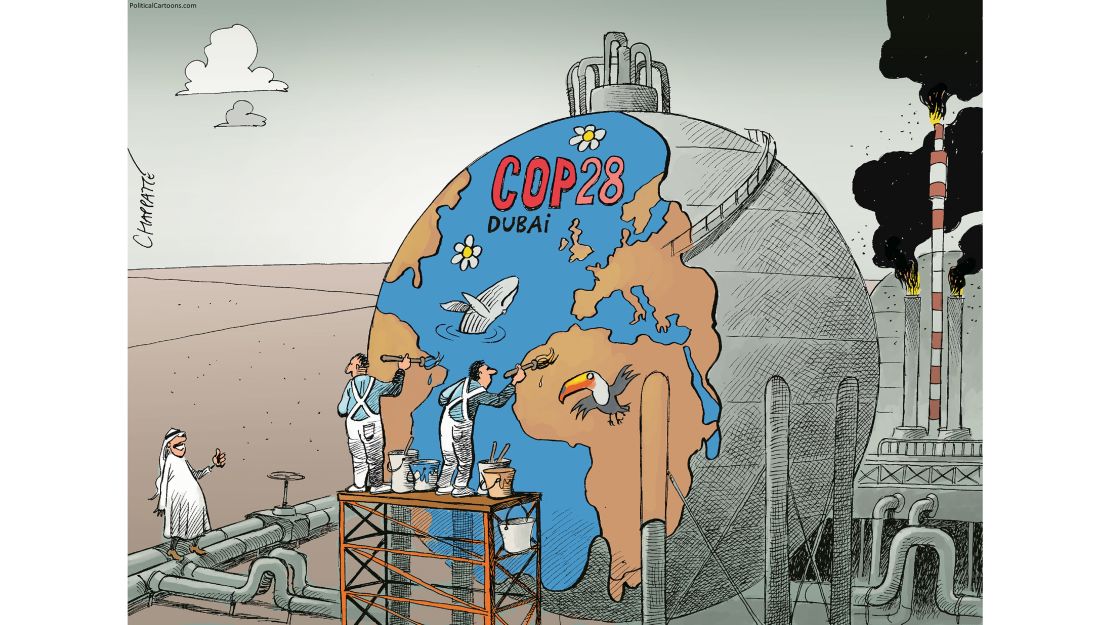
The world’s biggest climate conference is taking place in the United Arab Emirates, “a petrostate,” wrote John D. Sutter. “The COP president is Sultan Al Jaber, the head of a renewable energy company and also the Abu Dhabi National Oil Company.”
Making matters worse, Al Jaber made some “stupefying comments, including that abandoning fossil fuels — which, again, should be the point of these talks — risks putting us ‘back into caves.’ He also claimed, falsely, that there is ‘no science’ supporting a total phase-out of fossil fuels in order to meet temperature goals that are the center of the negotiations.”
Sutter argued that world leaders at COP28 “can and should deliver on that promise” of a phase-out.
“And the public must hold them to account.”
Don’t miss
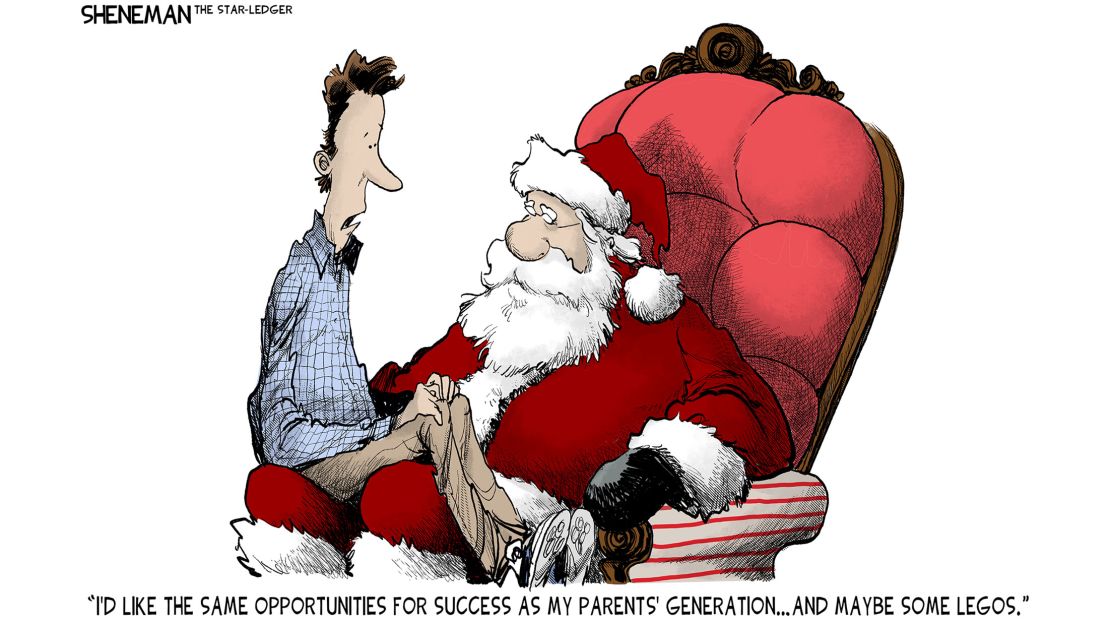
Jalal Baig: Why Aaron Rodgers shouldn’t rush his return to football
Mary Ziegler: This Texas woman is exposing a chilling truth about abortion law
Kirsi Goldynia’s Q&A with Robert Klitzman: The life-and-death history lesson that doctors aren’t learning
Noah Berlatsky: A legendary director creates his own ‘Alice in Wonderland’
Dean Obeidallah: The real reason Trump is attacking Obamacare
AND…
Taylor Swift, the right choice?
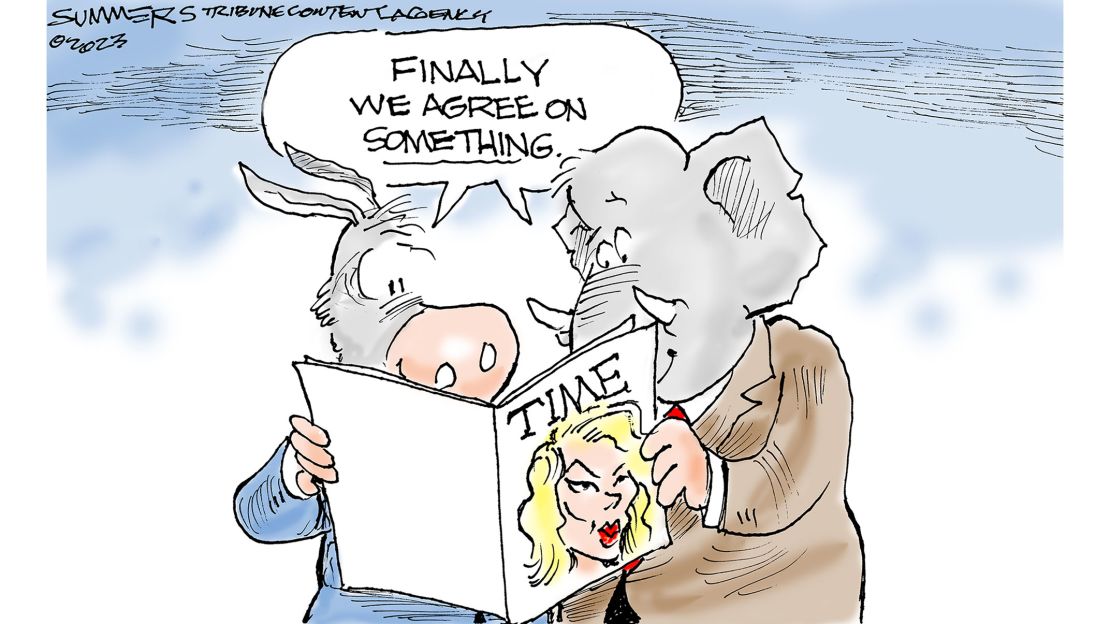
There are a billion reasons Taylor Swift was chosen as TIME’s Person of the Year, and Holly Thomas understands them. The singer has had a “stellar year,” reigning over pop culture and music while becoming a billionaire, according to Forbes. But Thomas questioned whether she’s the right choice. Traditionally the title goes to “the person who’s had the most influence, for ‘good or ill’ over the previous 12 months. … Previous winners have included Adolf Hitler, Joseph Stalin, Greta Thunberg, Martin Luther King Jr. and Elon Musk.”
TIME named Sam Altman, who heads OpenAI as the CEO of the year, given his company’s introduction of the revolutionary ChatGPT. But, Thomas argued, “Altman, not Swift, ought to have been Time’s ‘Person of the Year.’ His impact on the world could be exponentially more consequential, but not nearly enough people are aware of him or the implications of his technology.”

